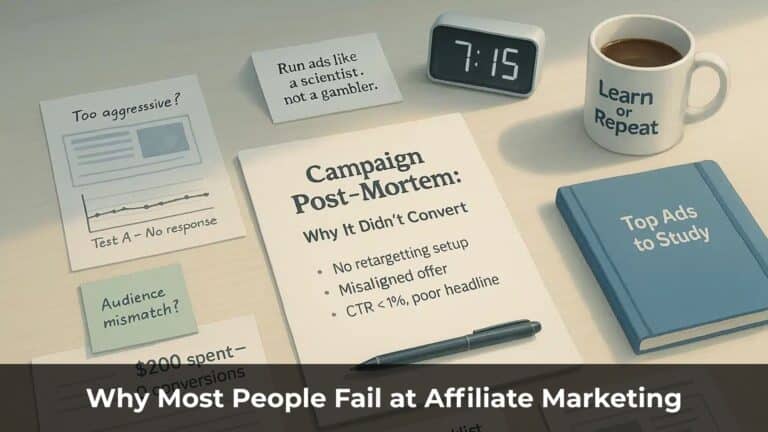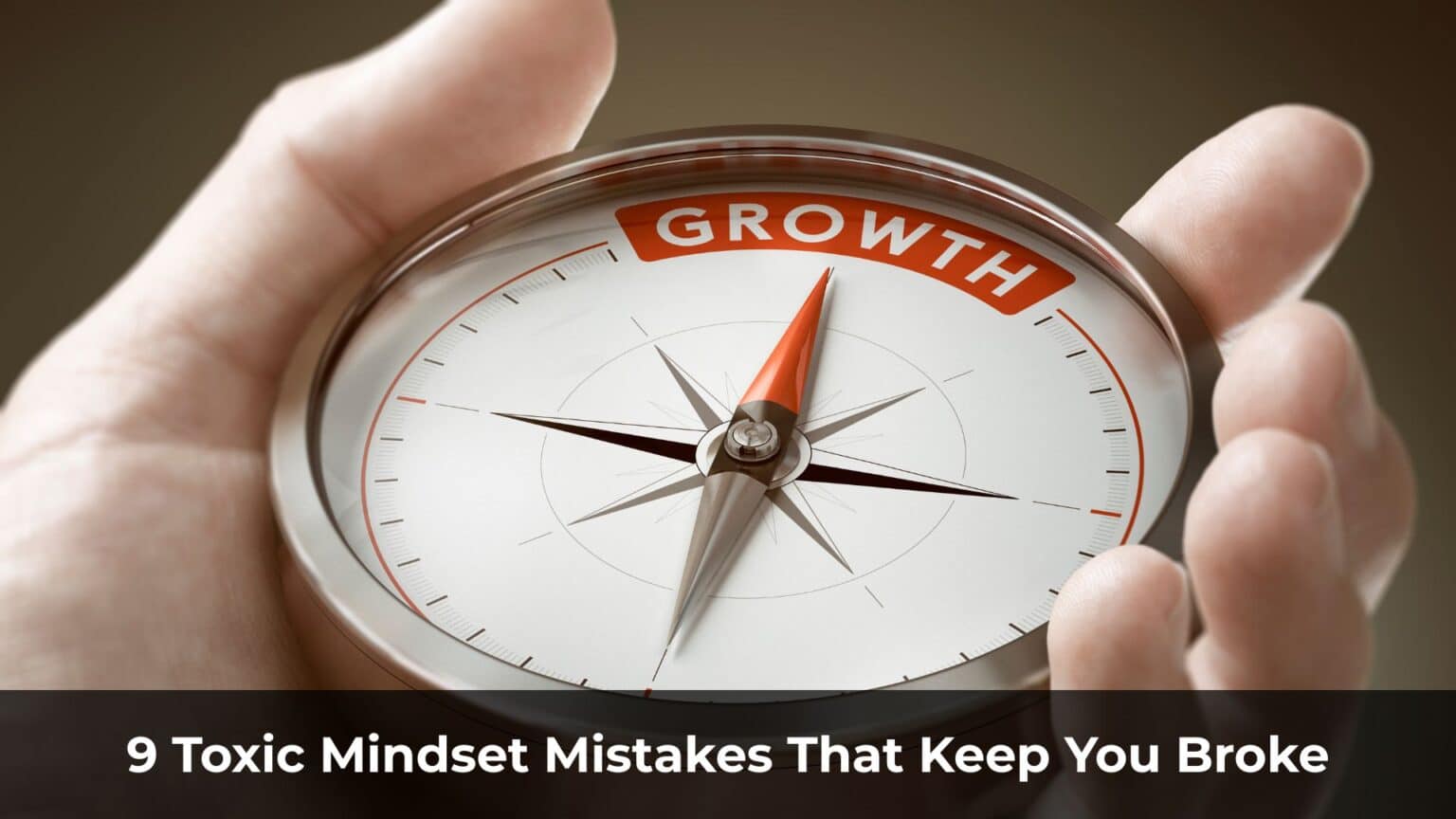Everyone talks about hard work. Some talk about luck.
But what if neither is the real difference between being rich — and being ultra wealthy?
The truth is: those at the very top don’t just work harder.
They think differently.
They move through each day with discipline, clarity, and a quiet set of habits that compound over time — into serious wealth.
Over the years, I’ve had the chance to learn directly from entrepreneurs, CEOs, and investors who’ve built fortunes worth hundreds of millions.
And what stood out wasn’t their charisma or connections.
It was how boringly consistent they were — in a few key areas that most people overlook.
This article breaks down 9 habits you’ll find across the ultra wealthy — and how you can start applying them to your own life and business.
No fluff. No vague inspiration. Just practical, proven shifts that change the way wealth is built.
Table of Contents
ToggleThey Prioritize Health and Relationships — Not Just Money
Money is just one layer of wealth.
The ultra wealthy know this — and they protect the other layers just as fiercely.
Your health and your relationships are two assets that no amount of money can replace.
It doesn’t matter how much you earn if your body is falling apart or if no one wants to sit at the dinner table with you.
That’s why many successful entrepreneurs schedule workouts like meetings.
They walk 10,000 steps a day.
They lift weights to preserve bone strength and muscle mass — not to show off, but to function at their best for decades.
They also invest in family the same way they invest in their business.
Dinner time becomes non-negotiable. No phones. No distractions. Just listening, asking questions, paying attention — even if their kids repeat the same stories every night.
Because here’s the truth:
If you don’t show up for people now, they won’t be around when you finally have time later.
And if your health breaks down, all that money you’ve earned will end up paying hospital bills instead of buying freedom.
The ultra wealthy don’t make this trade.
Neither should you.
They Eliminate Decision Fatigue
Steve Jobs wore the same outfit every day — black turtleneck, jeans, sneakers.
Not because he lacked style. But because he understood the cost of small decisions.
The ultra wealthy protect their mental energy like it’s money in the bank.
And in a way, it is.
Every time you waste 5 minutes debating what to wear, what to eat, what task to do next — you drain your ability to think clearly when it actually matters.
It’s called decision fatigue, and it kills focus without you even noticing.
That’s why high performers create routines, defaults, and systems for all the small stuff:
- They eat the same breakfast.
- They batch similar tasks together.
- They build a morning routine that removes friction.
- They simplify their wardrobe, workspace, and calendar.
This isn’t about being robotic. It’s about being intentional.
You reduce the noise, so your brain has room for the high-leverage work: strategy, sales, hiring, investing — the things that actually move the needle.
The fewer decisions you make by default, the sharper your decisions become by choice.
They Leverage AI and Delegation
Wealthy people don’t try to do everything themselves.
They ask a better question:
“What’s the highest use of my time — and what can be automated or outsourced?”
Every day, you’re spending hours on low-value tasks: answering emails, formatting reports, scheduling posts, organizing folders.
These things don’t move your business forward.
They just keep it running.
And the ultra wealthy don’t spend their energy there.
Instead, they leverage tools and people.
- Use AI to handle repetitive work — drafting, summarizing, organizing, writing copy, analyzing data.
- Hire a VA to manage inboxes, documents, customer service, even project coordination.
You don’t need a big budget.
You can find capable VAs from other countries for a fraction of what you’d expect — and free up hours each day.
Because here’s the truth:
If your time is worth $100/hour (or even $50/hour), and you’re doing $10/hour tasks… You’re the bottleneck in your own business.
Let go of control.
Systemize the small stuff.
And give yourself the space to focus on what actually grows your income.
They Wake Up Early (Really Early)
Waking up at 4:00 a.m. isn’t a flex. It’s a competitive advantage.
Some of the wealthiest entrepreneurs in the world — from Tim Cook to Howard Schultz — start their day before sunrise. Not because they “enjoy mornings,” but because those hours are quiet, clean, and free from distractions. There are no meetings. No Slack notifications. No one asking for your time.
Just you — and the most important task of the day.
In my case, I use the first 30–60 minutes of every morning to work on revenue-generating campaigns: Facebook ads, YouTube ads, Google ads. These are actions that directly produce ROI — not next quarter, but often by the end of the day.
This is what deep work looks like. And it’s nearly impossible to do once the noise of the day begins.
If waking up at 4 a.m. sounds crazy to you, don’t worry. You don’t have to go there right away.
Start small. Wake up just one hour earlier than usual. Give yourself that first quiet window to focus on something that actually moves your business forward. Then, build from there.
Over time, you may realize that 4 a.m. isn’t insane — it’s a system.
Early hours create space. And space is where high-leverage thinking happens.
They Protect Their Focus and Time
The ultra wealthy don’t try to “do more.”
They do less — with more focus.
If something doesn’t move the needle, they say no.
Not later. Not maybe. Just no.
That one habit alone frees up their time for real leverage:
- Solving high-impact problems
- Thinking long-term
- Reviewing numbers
- Building systems
- Hiring the right people
Even “learning” is time-boxed.
They might read or listen to podcasts, but never at the expense of execution.
30 minutes a day is plenty — the rest is implementation.
You’ll rarely see them in back-to-back meetings or chasing tasks that don’t tie to a clear outcome.
Because attention is a limited resource.
And in business, your attention is often your most expensive asset.
They Give 100% Presence in Short Time Blocks
Time isn’t your most valuable asset.
Attention is.
Ultra wealthy individuals don’t just manage their calendar.
They manage their focus — with ruthless precision.
One of the most underrated habits they share?
They work (and live) in short, focused time blocks — and give those blocks everything they’ve got.
If a task is worth 30 minutes, they do it in 30 — not while checking emails, not while texting back, not while multitasking.
Same goes for family time.
You’ll see entrepreneurs spend 2 hours having dinner with their kids, but be on their phones 90% of the time.
That’s not presence. That’s being in the room but not really there.
Meanwhile, others spend just 30 minutes — but those 30 minutes are fully present. No distractions. No half-listening.
And here’s the kicker:
When you train yourself to work in focused bursts, you’ll start finishing 1-hour tasks in 20 minutes.
Because time expands when you shrink distractions.
Try this:
- Give yourself 20 minutes for your next task.
- Set a timer.
- Turn off notifications.
- Go all in.
The wealthy don’t always have more time.
They just waste less of it.
They Stick to Their Lane
Ultra wealthy people don’t chase every shiny trend.
They double down on what they already know better than most — and go deeper.
Take Warren Buffett.
For decades, he avoided tech stocks not because he hated them, but because he didn’t fully understand them.
He stuck to industries he could analyze confidently — insurance, consumer goods, banking — and that discipline made him one of the wealthiest investors in history.
Only when he had a trusted team that understood tech better did Berkshire Hathaway invest in companies like Apple.
The lesson?
Mastery beats diversification — at least in the early stages.
Trying to be everywhere usually means being mediocre at everything.
When you go all in on one space — the one where your knowledge, network, and instincts are strongest — you get an edge.
You make better decisions. You spot opportunities faster. You recover from mistakes quicker because you understand the game.
That’s how real leverage is built:
Through depth, not distraction.
Start by asking yourself:
What do I already know better than 90% of people?
What have I spent years thinking about, testing, refining?
That’s probably where your next big win is hiding — not in the latest crypto, AI hype, or “next big thing.”
They Target Big Markets with Daily Use
The ultra wealthy don’t chase niche fads.
They build or invest in products that serve large markets — and get used every single day.
Take Apple. They didn’t become a $3 trillion company by selling luxury gadgets.
They focused on the smartphone — a product billions of people can’t go a day without.
Not everyone needs a laptop. But nearly everyone needs a phone.
That’s the mindset shift:
Don’t just ask, “Is this a good product?”
Ask, “How often will someone use this — and how many people need it?”
You don’t need to build something for the whole world.
But if your product is essential for a specific group — especially in business — and it’s used daily, you’re on to something powerful.
Because the more frequent the usage, the higher the retention.
And the higher the retention, the more scalable and profitable the business becomes.
Daily use = long-term revenue = real wealth.
They Learn Relentlessly — from Everyone
The wealthiest people in the world have something in common: they never stop learning. Not when they make their first million. Not when they hit a hundred.
They read — a lot.
Warren Buffett reads over 500 pages a day.
Bill Gates takes solo reading vacations.
Many top entrepreneurs treat books, podcasts, and even biographies like strategic tools — not hobbies.
But it’s not just about reading.
They stay open.
They listen to younger generations. They seek out feedback.
They learn from failures, from competitors, from teams, from markets, from mistakes that cost them millions.
The key difference?
They’re not trying to be right — they’re trying to get better.
It’s why Elon Musk didn’t quit after SpaceX rockets kept exploding.
Why Zuckerberg quietly moved away from the Metaverse and doubled down on AI.
Why Apple, despite its failures, continues to launch category-defining products.
They learn fast — and adjust faster.
And here’s something worth remembering:
They don’t just learn from the rich.
They learn from anyone.
Because they know a useful insight can come from a mentor, a book, a kid, or even a competitor.
“Is your mouth shut? Are your ears open?”
That simple mindset shift could save you years of trial and error.
If you want to build lasting wealth, keep learning — especially when you think you already know.
The Bottom Line
Wealth isn’t just about what you earn.
It’s about what you focus on — every single day.
The habits above aren’t flashy. They won’t go viral.
But they’re what quietly separate the top 1% from everyone else.
You don’t need to copy someone else’s life.
But if you take even one of these habits seriously — and live it —
you’re already ahead of most people chasing success without structure.
Keep your head clear.
Protect your time.
And build with intention.
That’s how real wealth starts.













